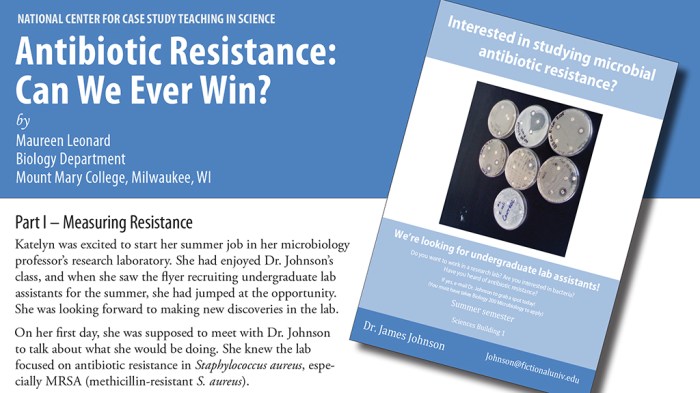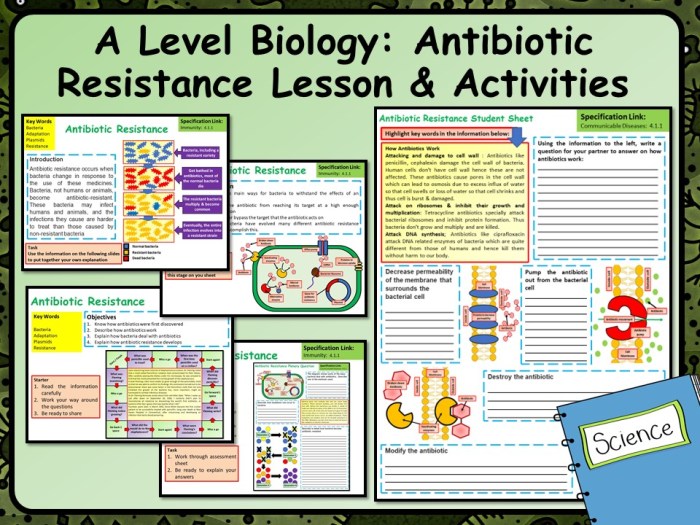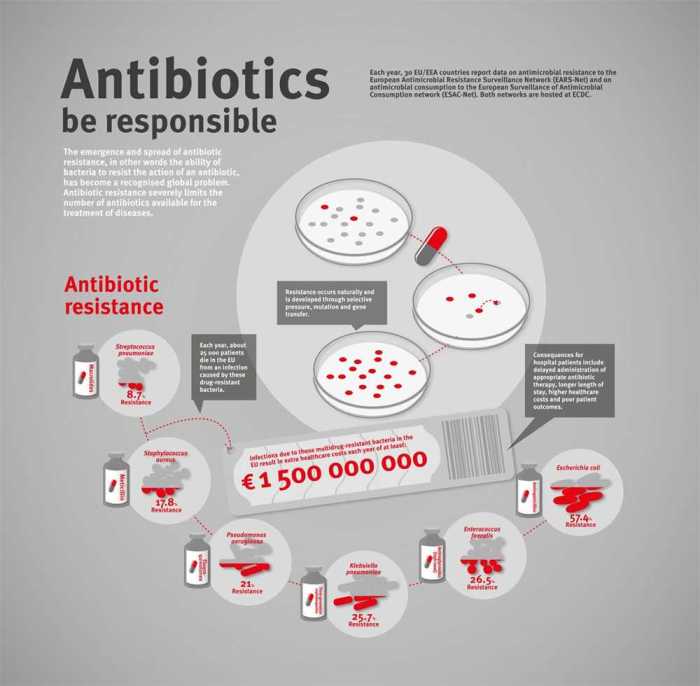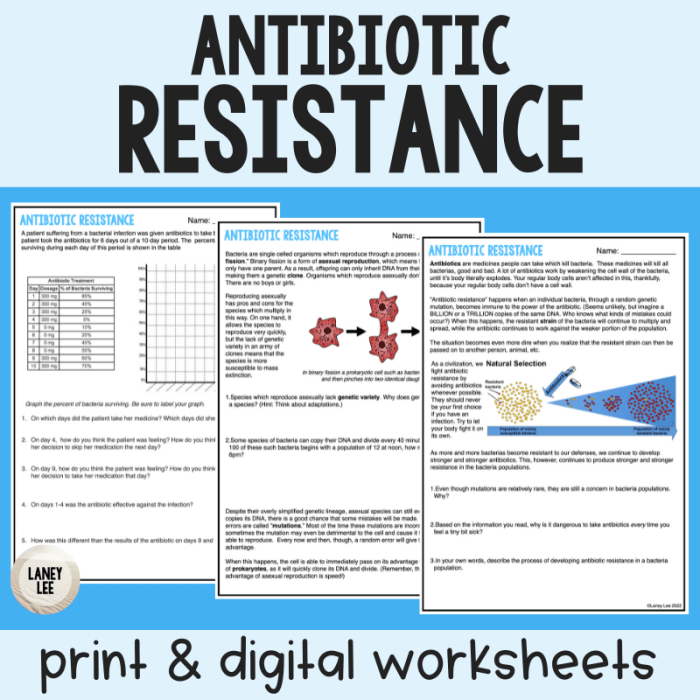Antibiotic resistance can we ever win worksheet answers sets the stage for this enthralling narrative, offering readers a glimpse into a story that is rich in detail and brimming with originality from the outset. The content of the second paragraph provides descriptive and clear information about the topic.
Antibiotic Resistance Overview
Antibiotic resistance refers to the ability of bacteria to evade the effects of antimicrobial drugs, making it difficult or impossible to treat bacterial infections. It is a growing global health concern, as it threatens the effectiveness of antibiotics, which are essential for treating a wide range of infections.
Antibiotic resistance can be caused by various factors, including the overuse and misuse of antibiotics, which allows resistant bacteria to survive and multiply. Additionally, the spread of resistance genes through horizontal gene transfer between bacteria further contributes to the problem.
Causes of Antibiotic Resistance
- Overuse and misuse of antibiotics
- Inadequate dosage or duration of antibiotic treatment
- Self-medication and failure to complete prescribed antibiotic courses
Consequences of Antibiotic Resistance
- Increased treatment failures and longer hospital stays
- Limited treatment options for infections
- Higher healthcare costs
- Increased risk of severe illness and death
Mechanisms of Antibiotic Resistance
Bacteria develop antibiotic resistance through various mechanisms, including:
Efflux Pumps
Bacteria can pump antibiotics out of their cells, reducing the intracellular concentration of the drug.
Target Modification
Bacteria can modify the target site of an antibiotic, making it less effective or ineffective.
Enzymatic Degradation
Bacteria can produce enzymes that break down antibiotics, rendering them inactive.
Alteration of Metabolic Pathways
Bacteria can alter their metabolic pathways to bypass the target of an antibiotic.
Spread of Antibiotic Resistance: Antibiotic Resistance Can We Ever Win Worksheet Answers
Antibiotic resistance can spread within bacterial populations through:
Vertical Gene Transfer
Resistance genes are passed down from parent to offspring bacteria during cell division.
Horizontal Gene Transfer, Antibiotic resistance can we ever win worksheet answers
Resistance genes can be transferred between bacteria through mechanisms such as conjugation, transformation, and transduction.
Role of Plasmids
Plasmids are small, circular DNA molecules that can carry resistance genes and be transferred between bacteria.
Impact of Antibiotic Resistance

Impact on Human Health
- Increased morbidity and mortality from infections
- Limited treatment options for infections
- Increased healthcare costs
Economic and Societal Consequences
- Loss of productivity due to illness
- Increased healthcare expenditures
- Reduced economic growth
Strategies to Combat Antibiotic Resistance

Antibiotic Stewardship
Implementing guidelines for appropriate antibiotic use, including dose optimization and duration of treatment.
Infection Prevention and Control
Promoting hand hygiene, vaccination, and other measures to reduce the spread of infections.
Development of New Antibiotics
Investing in research and development of new antibiotics with novel mechanisms of action.
Alternative Therapies
Exploring alternative therapies, such as bacteriophages and antimicrobial peptides, to combat antibiotic-resistant infections.
Future Directions in Antibiotic Resistance Research

Emerging Technologies
Investigating new technologies, such as CRISPR-Cas9, for targeted gene editing and the development of new antibiotics.
Overcoming Resistance Mechanisms
Understanding and overcoming the mechanisms of antibiotic resistance to develop more effective antibiotics.
Alternative Approaches
Exploring alternative approaches, such as phage therapy and immunotherapies, to combat antibiotic-resistant infections.
Education and Public Health Measures

Education and Awareness
Educating healthcare professionals, patients, and the public about antibiotic resistance and appropriate antibiotic use.
Public Health Campaigns
Implementing public health campaigns to promote responsible antibiotic use and reduce the spread of antibiotic resistance.
Surveillance and Monitoring
Establishing surveillance systems to monitor antibiotic resistance trends and guide public health interventions.
FAQ Compilation
What is antibiotic resistance?
Antibiotic resistance occurs when bacteria develop the ability to resist the effects of antibiotics, making it difficult or impossible to treat infections.
What are the consequences of antibiotic resistance?
Antibiotic resistance can lead to prolonged illnesses, treatment failures, increased healthcare costs, and even death.
How can we combat antibiotic resistance?
Strategies to combat antibiotic resistance include reducing antibiotic misuse, developing new antibiotics, and promoting infection prevention and control measures.